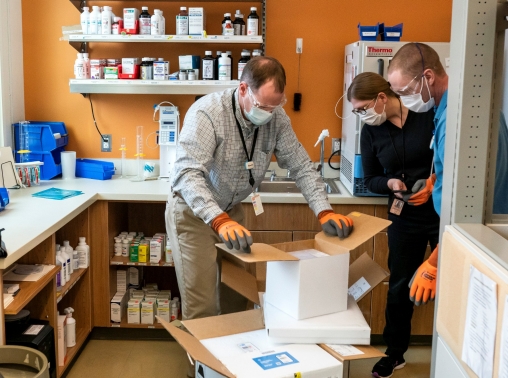|
|
RAND research and commentary on the issues that matter most
|
Oct 28, 2021
|
|
|
|
|
Photo by Brian Snyder/Reuters
|
|
|
|
“Gen C,” the COVID generation, is growing up amid extraordinary challenges that could shape their health, development, and well-being for years. But there is no comprehensive system for measuring their physical health, mental health, and social and cognitive development.
That's why researchers from RAND, UCLA, and the University of Pennsylvania developed “GDP2,” or gross developmental potential. Unlike GDP (gross domestic product), GDP2 aims to measure human potential, rather than focusing solely on economic production.
GDP2 considers people's ability to meet basic needs, such as food and housing, but it also measures important social and emotional development skills that allow everyone in society to thrive. This framework could provide data that assists policymakers and communities in helping children flourish. Read more »
|

|
|
During his time as RAND president and CEO, Rich also co-led the 'Countering Truth Decay' initiative to restore the role of facts in public life. Photo by Diane Baldwin/RAND Corporation
|
|
Longtime RAND President and CEO Michael D. Rich announced this week that he will retire in 2022 following a search for his successor. He began his extraordinary RAND career as a summer intern in 1975 and went on to hold several senior leadership positions. “There's no perfect time to leave a job you care so much about,” Rich said, “But I've always wanted the next president of RAND to have the benefit of entering the role at a time of organizational strength and opportunity. That certainly characterizes RAND now.”
Read more »
|
|

|
|
Pharmacists at the Chief Andrew Isaac Health Center unpack a new shipment in Fairbanks, Alaska, March 30, 2021. Photo by Nathan Howard/Reuters
|
|
Prescription drug shortages are a persistent policy and public health concern in the United States and around the world. A new RAND report finds that U.S. drug shortages are associated with modest changes in domestic drug volume and prices. But there is limited evidence to suggest that international volume and price changes are linked to U.S. shortages. With this in mind, there may be ways to leverage the supply of drugs in other countries when responding to U.S. shortages.
Read more »
|
|

|
|
Lt. Col. Scott Morley, commander of the Phoenix Recruiting Battalion, administers the oath of enlistment to 40 future soldiers, August 26, 2018, at Chase Field. Photo by Mike Scheck/U.S. Army
|
|
More than half of all new U.S. Army recruits come from states where marijuana is legal, at least for medicinal use. But using marijuana still disqualifies anyone wanting to enlist, so recruits who have done so in the past must ask for a waiver. To find out how these recruits perform once in uniform, RAND looked at thousands of soldiers who received waivers for past marijuana use and other marks on their records, such as depression or anxiety disorders. There was no evidence that these soldiers were riskier across the board than any others.
Read more »
|
|

|
|
Photo by Bartek Wróblewski/Adobe Stock
|
|
Sensors with unparalleled precision. Powerful new methods for cryptography. Lightning-fast computers. Emerging quantum technology could have major implications for national security and commerce. In a new analysis, RAND's Edward Parker examines the potential applications of these technologies and which countries are leading the way in the race to develop them. Parker concludes that the highest-impact quantum technologies are likely still many years away, and that there is no clear world leader in the field.
Read more »
|
|

|
|
Trays of injection materials are placed in cubicles at a supervised injection site in Paris, France, October 11, 2016. Photo by Patrick Kovarik/Pool/Reuters
|
|
Supervised drug consumption sites—where people who use drugs can do so under the supervision of trained staff—are illegal in the United States. But according to RAND experts, there are ways that federal officials could make it easier to pilot and evaluate these facilities. Supervised consumption sites alone won't solve the overdose crisis, the researchers say, but they could allow some communities to try something new in response to an overwhelming problem.
Read more »
|
|
|
You already get the latest insights from RAND in your inbox. Why not your earbuds?
Policy Currents is available as a weekly podcast. New episodes every Friday.
Subscribe now »
|
|
|
|
|